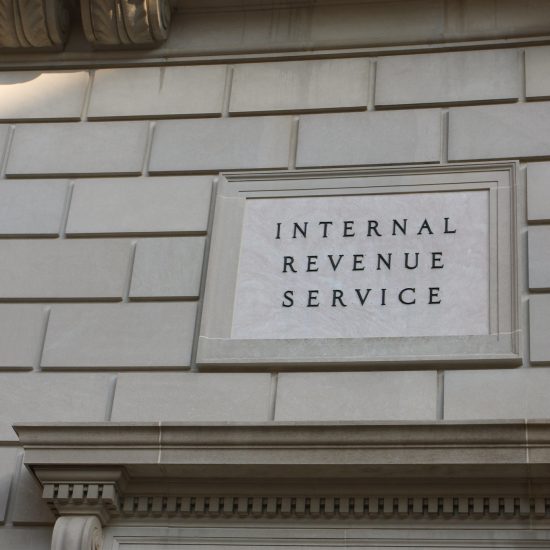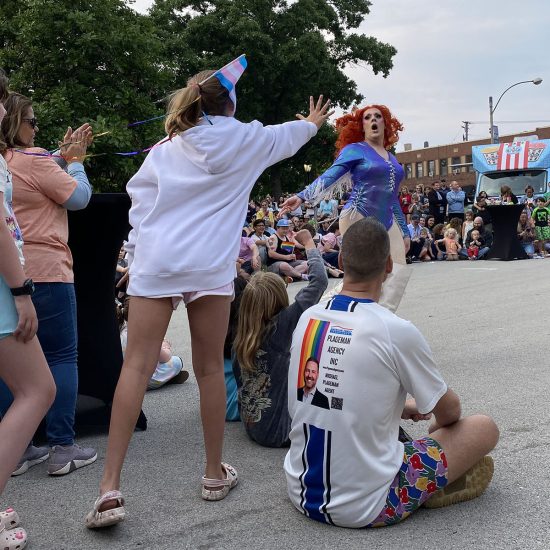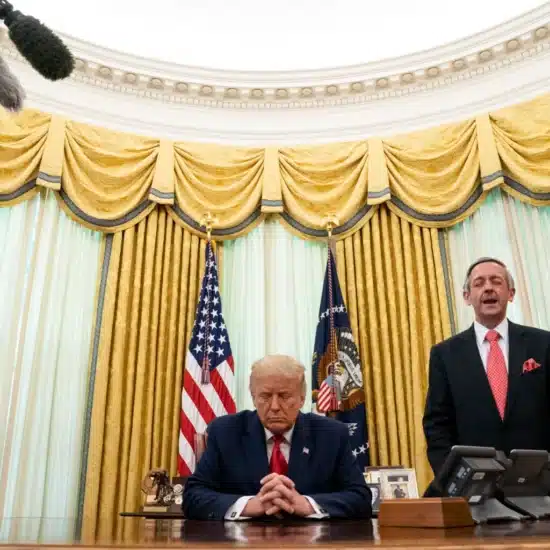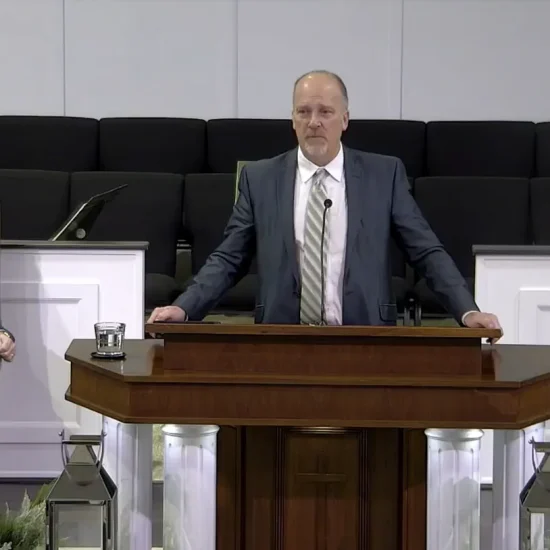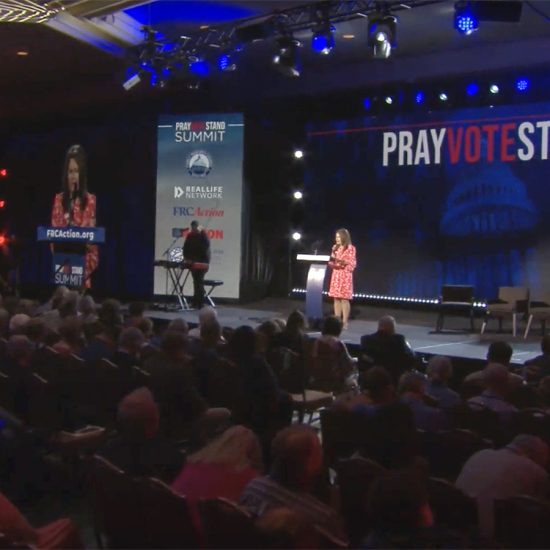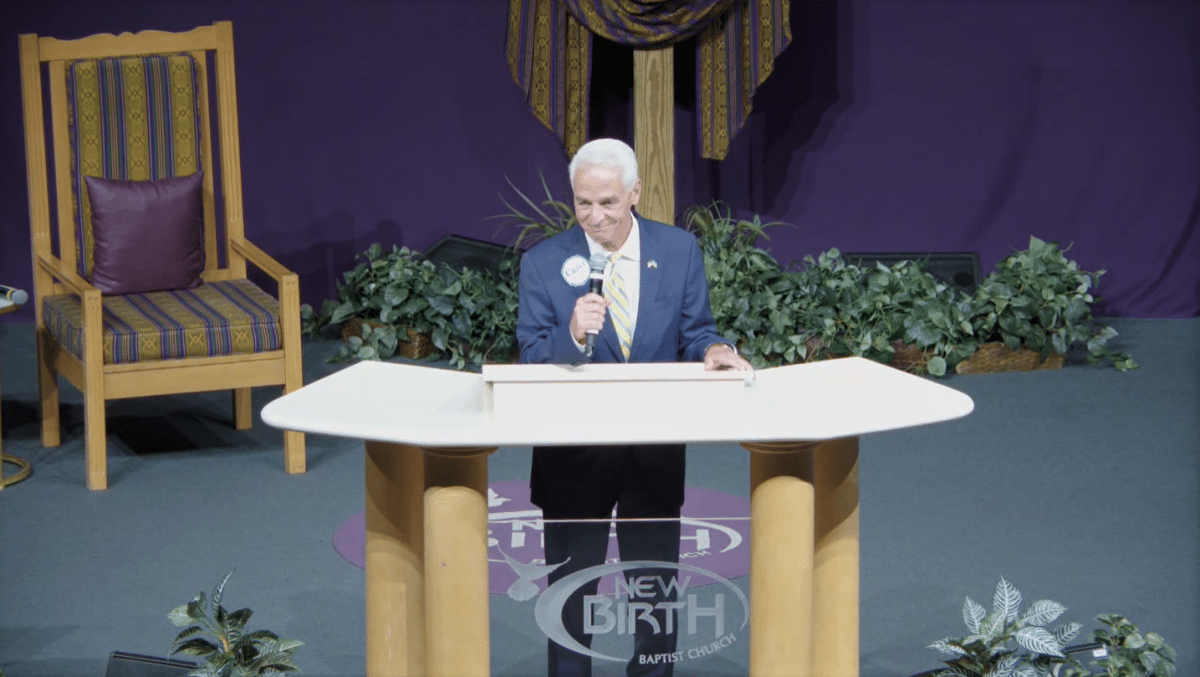
In 2018, a young politician just two years into his first elected office sought to unseat an incumbent Democratic U.S. senator. That young politician, Josh Hawley, is more famous today after his fist pump to insurrectionists on Jan. 6, 2021 (and the viral musical renditions of him running away later that day). But four years ago, a controversy erupted in his campaign about the role of churches and religious institutions in politics.
The GOP hoped Missouri’s red shift in recent years would aid the state’s attorney general in flipping a seat in Congress’s upper chamber. Senator Claire McCaskill had first won during the Democratic wave of 2006 and then held her seat six years later after Rep. Todd Akin controversially claimed women rarely get pregnant from “legitimate rape” and therefore abortion restrictions didn’t need an exception for rape (a policy position that is more mainstream in his party now than it was then).
But in 2018, McCaskill faced an increasingly Republican state and a young, smart challenger. As Hawley worked to oust her, however, he sparked controversy about how involved churches should be in political campaigns. This three-act saga, however, comes with a twist in that final part.
Act 1. The St. Louis Post-Dispatch obtained a recording of Hawley talking to pastors during the campaign. In it, Hawley argued for the repeal of the IRS’s political campaign activity ban (more commonly known as the “Johnson Amendment”). He argued it was “just absolutely unconstitutional” and claimed that “McCaskill and her Democrat [sic] allies need to stop trying to muzzle people of faith.” (Contrary to his claims, the rule has been applied by courts and passed in bipartisan votes).
In response to Hawley’s remarks, a McCaskill spokesperson said, “Claire opposes repealing the Johnson Amendment.” That statement put the senator on record. While Congress had blocked attempts to undo the rule, few members offered their support in such succinct and absolute terms.
Act 2. A month later, one of us (Brian) broke a story at Word&Way about Hawley moving from merely calling for the end of the IRS rule to actually helping a Baptist college break it. Hannibal-LaGrange University in Hannibal was set to host Hawley speaking in a chapel service that all students were required to attend, and the publicity materials highlighted his candidacy.
The Associated Press then picked up the story (citing Word&Way) and soon it was in newspapers and on NPR stations across the country. After the news attention, HLGU changed its promotions to better fit the IRS’s requirements.
But Hawley continued to push for the repeal of the IRS rule even as his comments suggested he didn’t actually understand it. Invoking Rev. Martin Luther King Jr.’s civil rights advocacy, he told the AP that he was glad “nobody silenced him from the pulpit.” However, King was speaking as a minister and not a candidate for elected office. Additionally, after his chapel remarks at HLGU that avoided campaign references, Hawley inaccurately told Word&Way that the “Johnson amendment” does not help prevent tax-exempt dollars from funding campaigns (it does). He also claimed “pastors and churches” were “uniquely disfavored” by it even though it applies to all 501(c)(3) nonprofits regardless of religious status. Additionally, he attacked McCaskill for saying she supported it.
Act 3. A month later and shortly before the election, Word&Way broke another story: a candidate in that senate race showed up in multiple churches to campaign in ways that put those churches in violation of the political campaign activity ban. But it wasn’t Hawley.
Despite professing support for the IRS rule, McCaskill spoke in several churches in the weeks leading up to election day. The very thing she criticized her opponent for, she did. The principle she argued was good, she broke. But she’s not an anomaly.
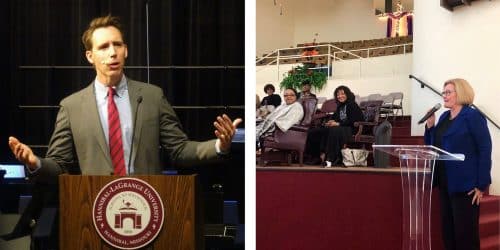
Left: Josh Hawley speaks during a chapel service at Hannibal-LaGrange University on Oct. 3, 2018, in Hannibal, Missouri. (Brian Kaylor/Word&Way). Right: Claire McCaskill speaks on Oct. 21, 2018, at Zion Grove Missionary Baptist Church in Kansas City, Missouri. (McCaskill campaign)
 The disconnect between Democrats criticizing Republicans for pushing Christian Nationalism and Democratic candidates also trafficking in similar rhetorical themes while campaigning in church pulpits continues in this year’s midterm elections. So, in this issue of A Public Witness, we take you to church to hear from Democratic gubernatorial nominees Charlie Crist in Florida, J.B. Pritzker in Illinois, and Stacey Abrams in Georgia. And then we consider the problems emerging from this campaign tactic.
The disconnect between Democrats criticizing Republicans for pushing Christian Nationalism and Democratic candidates also trafficking in similar rhetorical themes while campaigning in church pulpits continues in this year’s midterm elections. So, in this issue of A Public Witness, we take you to church to hear from Democratic gubernatorial nominees Charlie Crist in Florida, J.B. Pritzker in Illinois, and Stacey Abrams in Georgia. And then we consider the problems emerging from this campaign tactic.
NOTE: The rest of this piece is only available to paid subscribers of the Word&Way e-newsletter A Public Witness. Subscribe today to read this essay and all previous issues, and receive future ones in your inbox.

